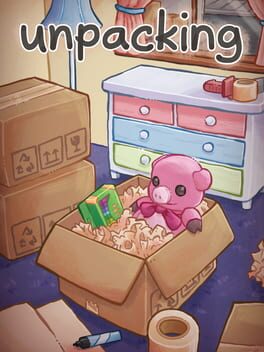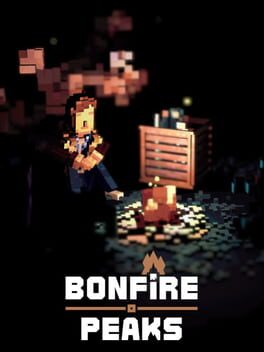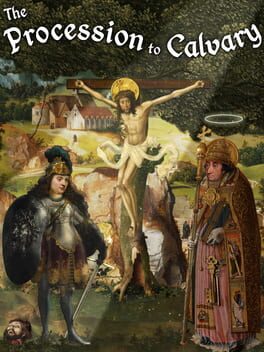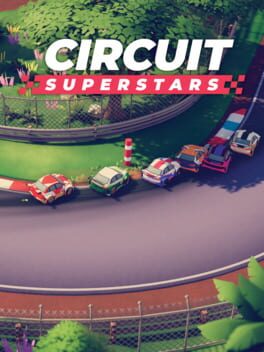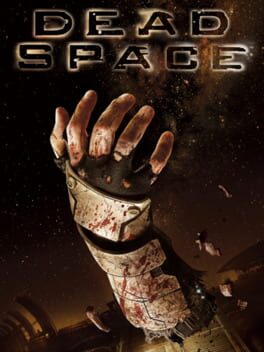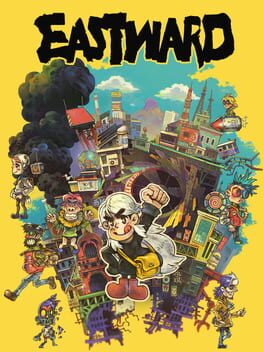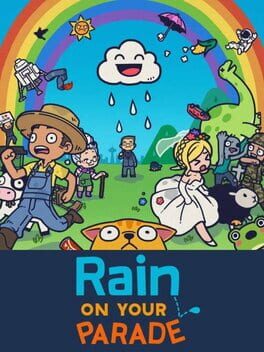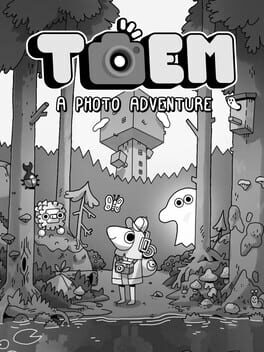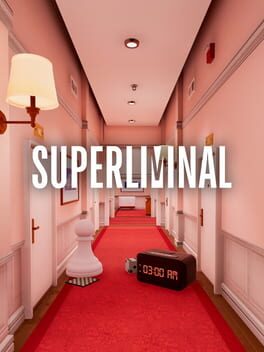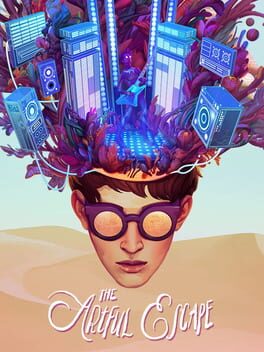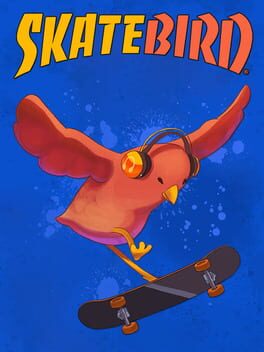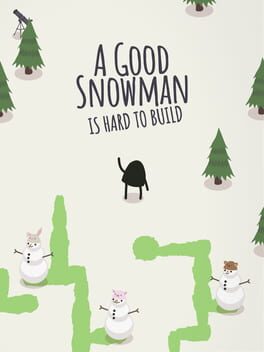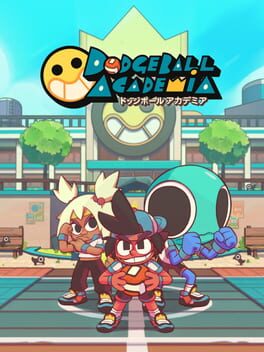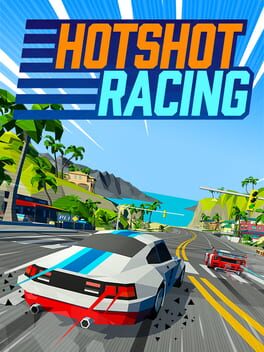tangysphere
BACKER
2021
A very good combination of puzzle placement gameplay and great use of show-don't-tell storytelling, using your possessions and environments to help tell the story of your unnamed house hopper.
Would have been nice to see a few more levels, or maybe an almanac of all the in-game items (some of them are weirdly hard to identify and locate an appropriate room for) but I can give some leeway here due to the size of the team.
Would have been nice to see a few more levels, or maybe an almanac of all the in-game items (some of them are weirdly hard to identify and locate an appropriate room for) but I can give some leeway here due to the size of the team.
2021
Through sheer iteration, F1 is better than it's ever been in video game form - a shame then that the much vaunted and marketed story mode is complete and utter tosh.
I don't fault the game for having a set story it wants to tell, but it constantly allows you to break the believability of what you're being told by what it lets you do on track. It would also help if the story itself was interesting or believable in any capacity - if you have anything more than a surface level understanding of the sport it just seems ridiculous at points.
But it's still one of the best racing games out there and great fun in the usual career or multiplayer modes, and one that's surprisingly easy for newcomers to get into despite how complicated the sport can be.
I don't fault the game for having a set story it wants to tell, but it constantly allows you to break the believability of what you're being told by what it lets you do on track. It would also help if the story itself was interesting or believable in any capacity - if you have anything more than a surface level understanding of the sport it just seems ridiculous at points.
But it's still one of the best racing games out there and great fun in the usual career or multiplayer modes, and one that's surprisingly easy for newcomers to get into despite how complicated the sport can be.
2021
The influence of Monty Python on Joe Richardson's work is undeniable, not only in Terry Gilliam-esque animation but also the overall tone and humour of the writing and scenarios. With such direct and successful comparisons available, it's a testament to the game that it manages to feel like it's own thing.
Drawing on the art of the Renaissance era, the scenarios you're placed in seem utterly bizarre until you looks at the paintings that inspired them, with just the right level of self awareness about them in the writing and dialogue to not feel heavy handed. The absurdity also lends itself to some of the more out-there solutions you sometimes see in point and click games, although it would perhaps benefit from a smidgen more guidance - it wouldn't have to be a lot, but small things like some dialogues with hints being said more than once wouldn't go a miss.
The Processions to Cavalry is short and sweet and while I would have liked to see a few more areas to explore and solve silly puzzles in, I certainly appreciate the effort that has gone into recreating these classic paintings and portraits as environments and characters
Drawing on the art of the Renaissance era, the scenarios you're placed in seem utterly bizarre until you looks at the paintings that inspired them, with just the right level of self awareness about them in the writing and dialogue to not feel heavy handed. The absurdity also lends itself to some of the more out-there solutions you sometimes see in point and click games, although it would perhaps benefit from a smidgen more guidance - it wouldn't have to be a lot, but small things like some dialogues with hints being said more than once wouldn't go a miss.
The Processions to Cavalry is short and sweet and while I would have liked to see a few more areas to explore and solve silly puzzles in, I certainly appreciate the effort that has gone into recreating these classic paintings and portraits as environments and characters
2021
It may look like a party racing game in the vein of Micro Machines but Circuit Superstars is its own animal, combining the top-down cartoony aesthetic of the Codemasters classic with sim-elements which isn't a combination I've seen very often at all and one that works. Mostly.
Probably most importantly the cars feel fun to fling around each course, with each vehicle type having distinct handling and providing a different challenge and it's to the game's credit that it feels satisfying when you nail everything. Another nice touch is the addition of pit strategies, something that you don't normally see in this type of racer, meaning that you can try something a bit different to your opponents either by taking a risk with you fuel and making fewer pit stops or making your tyres last slightly longer so that you're in a better position at the end of the race
The tracks are well designed and are complemented by the game's simple art style which isn't distracting but still helps each course feel alive. In fact, some of the circuits are stubby little homages to real world courses which are instantly recognisable if you know your motorsport but still different enough that you won't be able to master it immediately. Each of them has at least one or two corners which are tricky to get right every single time while still feeling fun to drive around when you don't.
Unfortunately at the minute the limited number of tracks get repetitive pretty quickly (especially with very short laps), while the game's main draw - the multiplayer offering - is severely underbaked, only offering public lobbies with a choice of three randomised races to pick from and nothing outside of that. Single-player too doesn't really have much to it outside of a short championship for each vehicle type. The physics as well are a little off, as sometimes the tiniest knock will have you flying off the circuit while a massive shunt into the side of your car doesn't do anything to your speed or position on the circuit.
I hope the devs continue to fine tune the game to smooth out some of the kinks and add new content as I think it could be something special but right now it's merely pretty good.
Probably most importantly the cars feel fun to fling around each course, with each vehicle type having distinct handling and providing a different challenge and it's to the game's credit that it feels satisfying when you nail everything. Another nice touch is the addition of pit strategies, something that you don't normally see in this type of racer, meaning that you can try something a bit different to your opponents either by taking a risk with you fuel and making fewer pit stops or making your tyres last slightly longer so that you're in a better position at the end of the race
The tracks are well designed and are complemented by the game's simple art style which isn't distracting but still helps each course feel alive. In fact, some of the circuits are stubby little homages to real world courses which are instantly recognisable if you know your motorsport but still different enough that you won't be able to master it immediately. Each of them has at least one or two corners which are tricky to get right every single time while still feeling fun to drive around when you don't.
Unfortunately at the minute the limited number of tracks get repetitive pretty quickly (especially with very short laps), while the game's main draw - the multiplayer offering - is severely underbaked, only offering public lobbies with a choice of three randomised races to pick from and nothing outside of that. Single-player too doesn't really have much to it outside of a short championship for each vehicle type. The physics as well are a little off, as sometimes the tiniest knock will have you flying off the circuit while a massive shunt into the side of your car doesn't do anything to your speed or position on the circuit.
I hope the devs continue to fine tune the game to smooth out some of the kinks and add new content as I think it could be something special but right now it's merely pretty good.
2008
I used to be a big defender of Isaac the silent protagonist but on this playthrough, him not replying to direct questions and other characters just pretending he had seemed very stupid.
But thankfully the rest of the game holds up (mostly - those turret sections can suck an egg), from the still rather impressive visuals to the constrictive ship design with its oppressive atmosphere which has more character than the people onboard
But thankfully the rest of the game holds up (mostly - those turret sections can suck an egg), from the still rather impressive visuals to the constrictive ship design with its oppressive atmosphere which has more character than the people onboard
2021
Eastward is a slow game. I put that out there not as a criticism but as a fact, and if it doesn't click with you then that's 100% fine; poor pacing can completely drain interest in a game for some people (and has done so for me in the past).
But slow doesn't necessarily have to mean bad. Eastward is very deliberate in its slower structure and I think the game as a whole actually benefits from that. I believe that's partly due to how I played it - no more than 2 hours a day, partly sticking to the chapter structure of the game - but also as it allows the player to engross themselves in the (very beautifully animated) world and learn more about the characters dotted around each of the various locations you travel through.
I also quite liked how the overarching story itself is sometimes not super explicit in how it's told, instead relying on you to put pieces together from conversations with various townsfolk either in side missions or just from general dialogue. And let's talk about these characters a bit more as while this game is certainly one of those 'it's about the journey' kind of stories, 'the people you meet along the way' are just as important. They're well-written and their dialogue doesn't come across as forced or unnatural and most important of all I was interested in what they had to say.
As for the non-story sections, well the combat is simple but has a satisfying loop and some of the weapons you get are pretty fun to play with. There are also some decent puzzles in play as you explore these monster-addled areas with two characters who can split off and each have separate abilities to solve these conundrums. There's even a very basic 8-bit roguelite RPG included that is surprisingly fun to play through (and draws some parallels to the main game world).
Finally I'd like to touch upon the nature of endings in video games, and media in general. There is occasionally the idea out there that if a story isn't wrapped up neatly with a bow that explains everything then it hasn't done a good job but I think that's an uncharitable read on things. As long as a story reaches a conclusion that feels natural and feels thematically correct then I don't really see an issue in certain elements not being fully explained or elaborated upon. Eastward takes this route and as with the pacing issues I think some people will inevitably leave disappointed, but the ending in play felt natural for Sam and John and I'm very impressed with how everything in the game turned out.
Eastward probably doesn't quite reach the heights of being my favourite game of 2021, but it is one of my favourite game experiences and one I'd seriously recommend to anyone after a slow burn road trip adventure.
But slow doesn't necessarily have to mean bad. Eastward is very deliberate in its slower structure and I think the game as a whole actually benefits from that. I believe that's partly due to how I played it - no more than 2 hours a day, partly sticking to the chapter structure of the game - but also as it allows the player to engross themselves in the (very beautifully animated) world and learn more about the characters dotted around each of the various locations you travel through.
I also quite liked how the overarching story itself is sometimes not super explicit in how it's told, instead relying on you to put pieces together from conversations with various townsfolk either in side missions or just from general dialogue. And let's talk about these characters a bit more as while this game is certainly one of those 'it's about the journey' kind of stories, 'the people you meet along the way' are just as important. They're well-written and their dialogue doesn't come across as forced or unnatural and most important of all I was interested in what they had to say.
As for the non-story sections, well the combat is simple but has a satisfying loop and some of the weapons you get are pretty fun to play with. There are also some decent puzzles in play as you explore these monster-addled areas with two characters who can split off and each have separate abilities to solve these conundrums. There's even a very basic 8-bit roguelite RPG included that is surprisingly fun to play through (and draws some parallels to the main game world).
Finally I'd like to touch upon the nature of endings in video games, and media in general. There is occasionally the idea out there that if a story isn't wrapped up neatly with a bow that explains everything then it hasn't done a good job but I think that's an uncharitable read on things. As long as a story reaches a conclusion that feels natural and feels thematically correct then I don't really see an issue in certain elements not being fully explained or elaborated upon. Eastward takes this route and as with the pacing issues I think some people will inevitably leave disappointed, but the ending in play felt natural for Sam and John and I'm very impressed with how everything in the game turned out.
Eastward probably doesn't quite reach the heights of being my favourite game of 2021, but it is one of my favourite game experiences and one I'd seriously recommend to anyone after a slow burn road trip adventure.
2021
After half an hour I was very close to putting this down - ruining people's day seemed fun at first but was getting a little bit old quickly, and I was getting a little tired with some of the meme humour. Thankfully that mostly changed once I hit the first non-conventional level and realised that Rain on Your Parade was basically What the Golf?! but with a cloud.
There was still some meme humour to deal with (and very outdated meme humour at that - we have an Antonie Dodson reference in here) but everything else became more quirky and charming as you receive more cloud abilities, and with fun ideas for levels cropping up and then being thrown out just as quickly to not overstay their welcome.
All that and not a single rubbish cloud-wifi joke in sight. Kudos.
There was still some meme humour to deal with (and very outdated meme humour at that - we have an Antonie Dodson reference in here) but everything else became more quirky and charming as you receive more cloud abilities, and with fun ideas for levels cropping up and then being thrown out just as quickly to not overstay their welcome.
All that and not a single rubbish cloud-wifi joke in sight. Kudos.
2021
I kind of wish TOEM had a bit more to say and show, but I was still pretty taken in by its relaxing atmosphere. Snapping pictures at your own pace is pretty satisfying across the varied black and white environments and while the puzzles don't require too much effort to solve, that's not really the point - it's about the journey and people you meet along the way
2019
Some fairly neat puzzles but I don't think it really went far enough with some of the ideas.
I'm possibly also a bit down on it as I wanted to replay with the developer commentary (more of this sort of thing in games please!) after finishing but the game didn't seem to recognise I'd completed it and when it returned to the menu after the credits I could only restart from chapter 3.
I'm possibly also a bit down on it as I wanted to replay with the developer commentary (more of this sort of thing in games please!) after finishing but the game didn't seem to recognise I'd completed it and when it returned to the menu after the credits I could only restart from chapter 3.
2021
The Artful Escape is a coming of age space opera about being true to yourself that is also a complete audiovisual treat. The story is simultaneously simple and over the top but remains well written throughout and it's also nice to see an Annapurna game with a star studded cast have more to work with than previous attempts this year, fitting in more naturally with solid performances and not overshadowing the game itself.
Outside of some light platforming and Simon Says sections there isn't a whole lot in terms of challenge, but for me the lack of a challenge is actually a benefit to the whole, tying in with a theme about playing what you want to play in the way you want to play it.
The slick animations and vivid, colourful landscapes certainly help with this as does an absolutely killer soundtrack, from folksy beginnings to full-on electrifying Bill & Ted-esque solos. Another boon is having a dedicated button in each level to shred your guitar along with the background music of each environment you visit, something which never got old.
Outside of some light platforming and Simon Says sections there isn't a whole lot in terms of challenge, but for me the lack of a challenge is actually a benefit to the whole, tying in with a theme about playing what you want to play in the way you want to play it.
The slick animations and vivid, colourful landscapes certainly help with this as does an absolutely killer soundtrack, from folksy beginnings to full-on electrifying Bill & Ted-esque solos. Another boon is having a dedicated button in each level to shred your guitar along with the background music of each environment you visit, something which never got old.
2021
A poorly controlling game is frustrating at the best of times but for a genre where being mechanically proficient is so important it can be an almost impossible hurdle to jump and unfortunately SkateBIRD fails at even the most basic ollie.
While the dialogue is charming and the models of each individual bird are really quite nice, you're actively fighting the game to have anything close to a good time. The camera just doesn't listen to you when there's a wall even in the vaguest vicinity, as it swings around of its won accord - sometimes the adjustments are minor but other times it's so extreme as to wildly alternate from 0-180 degrees. This is compounded by actually trying to move your bird. I'm glad that the game has options to allow you to turn off balance bars and make it harder for you to bail but the game will still fight with you, where making an even slightly sharp turn results in your bird falling over around 50% of the time. Landing tricks is slightly better but it's still sometimes a lottery as to whether you'll bail or land.
Most of the levels feel empty and void of any character with large gaps of nothingness sitting between different areas. There's also no real logic to where and when missions appear nor any clear indication where you need to go to activate them - there were a couple of occasions where I was skating around a level for upwards of 10 minutes just looking for another bird to be able to progress. And then when you do eventually find them, you'd wish you hadn't as you receive yet another 'collect 5 of these' or 'skate in a straight line' quest.
There are parts that I liked but they were drowned out heavily by the feeling that I was wasting my time. A massive shame as I think the idea does have some legs but right now it's just a bit of a mess. A charming mess, but a smiley face on a bin bag can only go so far.
While the dialogue is charming and the models of each individual bird are really quite nice, you're actively fighting the game to have anything close to a good time. The camera just doesn't listen to you when there's a wall even in the vaguest vicinity, as it swings around of its won accord - sometimes the adjustments are minor but other times it's so extreme as to wildly alternate from 0-180 degrees. This is compounded by actually trying to move your bird. I'm glad that the game has options to allow you to turn off balance bars and make it harder for you to bail but the game will still fight with you, where making an even slightly sharp turn results in your bird falling over around 50% of the time. Landing tricks is slightly better but it's still sometimes a lottery as to whether you'll bail or land.
Most of the levels feel empty and void of any character with large gaps of nothingness sitting between different areas. There's also no real logic to where and when missions appear nor any clear indication where you need to go to activate them - there were a couple of occasions where I was skating around a level for upwards of 10 minutes just looking for another bird to be able to progress. And then when you do eventually find them, you'd wish you hadn't as you receive yet another 'collect 5 of these' or 'skate in a straight line' quest.
There are parts that I liked but they were drowned out heavily by the feeling that I was wasting my time. A massive shame as I think the idea does have some legs but right now it's just a bit of a mess. A charming mess, but a smiley face on a bin bag can only go so far.
2021
2020
For better or (mainly) worse, Hotshot Racing goes all in on the aesthetic and looks just like an early 90s arcade racer. Unfortunately there isn't much else on offer - bland track layouts, seriously underwhelming game modes and some very dodgy stereotypes for most of the characters are obvious blemishes, but the rubber-banded AI is probably the worst part of the package.
I don't mind a game keeping things semi-interesting in a race against the computer but the AI just does not let you escape which would be okay if it weren't for the fact that they slow down so hard if you fall even slightly behind.
I don't mind a game keeping things semi-interesting in a race against the computer but the AI just does not let you escape which would be okay if it weren't for the fact that they slow down so hard if you fall even slightly behind.
